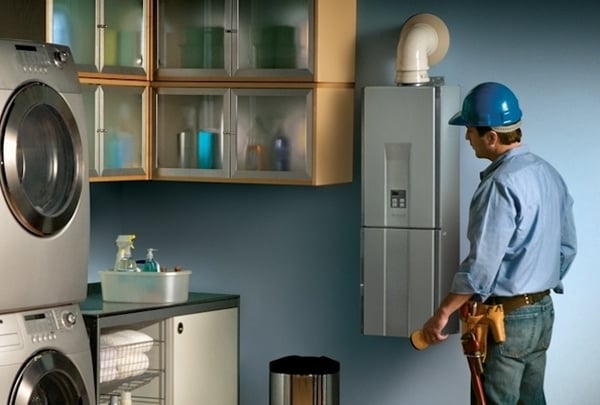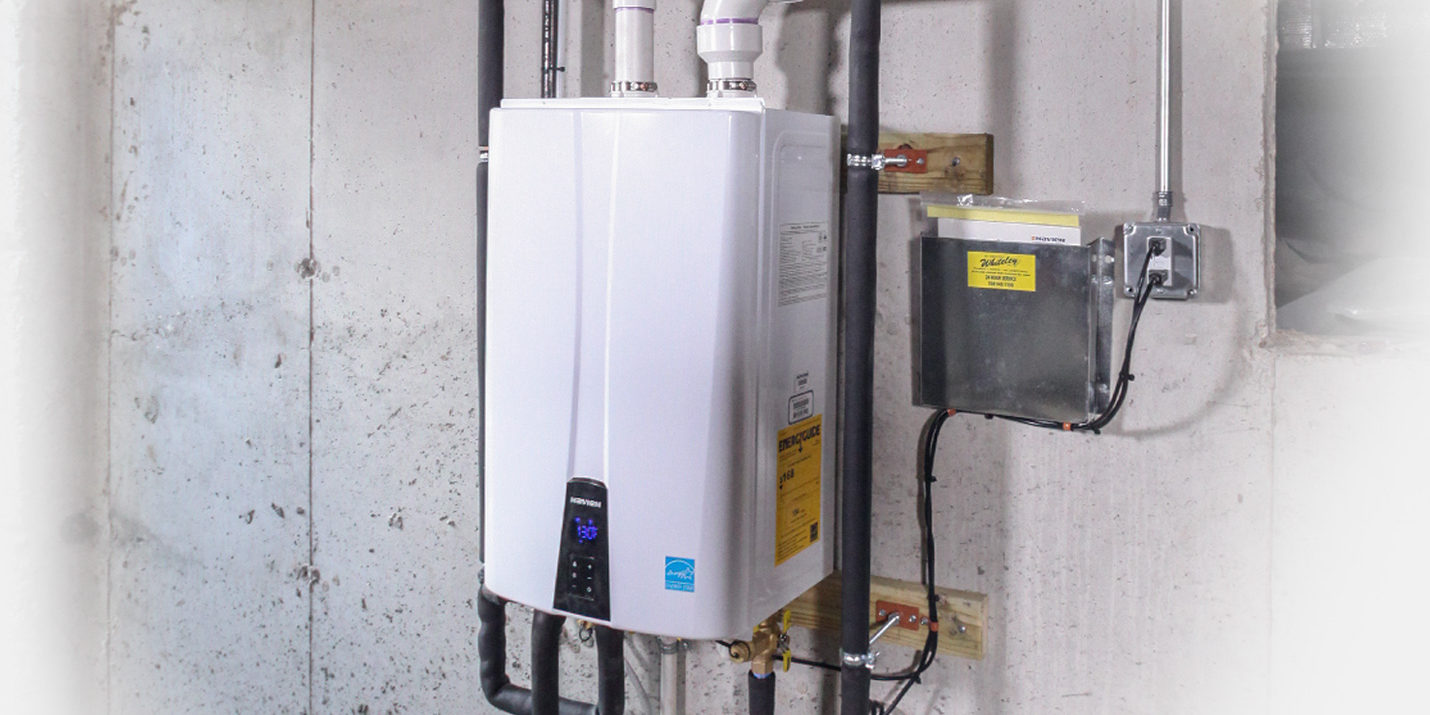The writer is making a few great points regarding Unveiling the Hot Trend: The Benefits of Tankless Water in general in this content following next.

In a globe where benefit and effectiveness preponderate, it's no surprise that property owners are frequently looking for smarter methods to manage their home's power usage and convenience. One innovation that has steadily acquired popularity is the tankless water heater. Yet just what makes these systems attract attention from the traditional tank-based models a lot of us matured with? Let's dive in and discover the benefits of tankless water heaters, helping you determine if it's time to make the switch in your house.
Introduction
Image this: you step into the shower after a lengthy day, anticipating a relaxing waterfall of warm water, just to be greeted by icy beads due to the fact that the last person used all of it up. Sound familiar? Typical hot water heater save a fixed amount of warm water, meaning you go to the mercy of that container's supply. Tankless systems, on the other hand, warm water as needed. Say goodbye to running out mid-shower, no more wrestling with timetables simply to make sure warm water is readily available.
Understanding Tankless Water Heaters
What Are Tankless Water Heaters?
Tankless water heaters, in some cases known as on-demand or instant water heaters, provide hot water just as it's needed. Instead of storing gallons of pre-heated water, these devices kick right into action the minute you turn on the faucet. Water goes through a warmth exchanger, warming up in real-time, suggesting you obtain an uninterrupted flow of hot water without the requirement for a huge container resting lazily by.
Just how Do They Differ from Conventional Solutions?
Typical heating systems hold a reservoir of hot water, using power to keep that container at a regular temperature. Tankless systems eliminate the standing supply, cutting down on lost power and the large footprint of a huge cyndrical tube. Basically, you're updating from a "accumulation" mindset to a "made-to-order" strategy.
Typical Types of Tankless Devices
Tankless hot water heater normally come in two selections: gas and electrical. Gas designs have a tendency to supply higher flow prices, ideal for bigger homes, while electric models commonly serve smaller homes and are typically easier to install. Furthermore, some systems are created for point-of-use (serving one fixture) while others can take care of the entire home's hot water demands.
Secret Advantages of Tankless Hot Water Heater
Energy Performance and Expense Savings
Say goodbye to heating a titan tank's worth of water and maintaining it cozy all day. Tankless heating units reduce standby power losses, which can reduce utility costs. While the first expense may be higher, the long-term savings typically validate the investment.
3. Space-Saving Design
If your home is short on storage space, getting rid of the large tank frees up beneficial area. Tankless units are small and can typically be mounted on wall surfaces, tucked away in edges, or installed in limited utility storage rooms without gobbling up the whole area.
4. Longer Life expectancy
A well-kept tankless hot water heater can outlive its tank-based relative. Standard tanks may last 10-15 years, while tankless versions can keep downing along for twenty years or more, making them a solid financial investment gradually.
1. Countless Hot Water Supply
Ever had to arrange showers so everybody obtains their reasonable share of hot water? With tankless, that becomes a distant memory. As long as the heater's circulation capacity isn't surpassed, you can take back-to-back showers without becoming a popsicle.
5. Improved Water Quality
Saving water in a container can in some cases bring about debris accumulation or a somewhat "off" taste. With tankless systems, fresh water is heated right away, minimizing the chances of debris accumulation and potentially using cleaner-tasting water.
Factors to consider Before Changing
Though the advantages are compelling, it's important to take into consideration a couple of variables prior to completely dedicating.
Examining Your Home's Water Usage Patterns
If your home at the same time makes use of multiple components with high hot water demand, ensure the device's flow price fulfills your demands. Recognizing your usage patterns aids you choose the best dimension and kind of tankless heating system.
Upkeep and Treatment Tips
Tankless systems are relatively reduced maintenance, but they aren't set-it-and-forget-it devices.
Regular Cleansing and Descaling
Difficult water minerals can accumulate in the heat exchanger, impacting performance. Regular descaling (often recommended every year) maintains the system going for peak performance.
Annual Professional Assessments
A yearly checkup from a specialist makes sure small concerns are caught early. They'll assess the system's efficiency, search for leakages, and help preserve optimum effectiveness.
Preliminary Investment Costs
Tankless heating units commonly feature a greater in advance price. Between the device itself and potential installation modifications, the first expense might give you sticker label shock. Yet bear in mind to see it as a long-term financial investment.
Setup Requirements
Relying on your home's facilities, you might need added electrical capability or gas line upgrades. Ensure you understand the setup needs and speak with an expert to prevent shocks.
Ensuring Proper Ventilation
For gas designs, appropriate air flow is vital to securely eliminate exhaust gases. Make sure venting systems are tidy and appropriately set up to stop any kind of possible security risks.
Comparing Different Brands and Models
Not all tankless hot water heater are produced equivalent.
Looking Into Dependable Manufacturers
Look for reputable brand names with a history of generating high quality units. A trusted producer often gives better client assistance and longer service warranties.
Installment: Do It Yourself or Professional?
While some house owners delight in tackling projects themselves, tankless installation may not be the very best time to break out the toolbox.
Advantages and disadvantages of DIY Installation
A DIY mount can save cash, yet it includes dangers. Wrong installation can cause ineffectiveness or security issues. If you're handy and have experience, it may be practical-- yet proceed with caution.
Checking Out Evaluations and Individual Comments
User evaluations and feedback from neighbors or pals who have gone tankless can offer beneficial understandings. In some cases, real-life experiences can be much more telling than advertising and marketing pamphlets.
When to Call a Professional Plumbing
For the majority of, calling a professional guarantees every little thing's done appropriately. An expert plumbing professional comprehends regional codes, sizing requirements, and airing vent specifications, reducing the threat of incidents.
Taking full advantage of Performance
You've bought a tankless system-- currently maximize its efficiency.
Optimal Temperature Settings
The majority of people set their systems between 120-140 F. Changing the temperature can boost convenience and savings. Experiment to find a sweet spot that doesn't squander energy.
Pairing with Low-Flow Fixtures
Want to stretch your system's abilities? Consider installing low-flow showerheads and faucets. They minimize water usage, allowing your tankless system to provide a constant stream of warm water without straining.
Environmental Influence
Tankless hot water heater straighten with greener living goals.
Reduced Carbon Impact
By using much less energy and just home heating water as needed, tankless systems can decrease your home's carbon footprint, reducing your environmental influence.
Conserving Natural Resources
Much less energy intake and less lost warm water translate right into fewer natural deposits being used, an environmental win-win.
That Profits Most from Tankless Heating systems?
The charm of tankless heaters is that they can match a range of houses.
Big Families vs. Solitary Owners
Big families could love the limitless hot water supply, while solitary residents value the power cost savings from not warming a whole storage tank for just one person's early morning shower.
Property Owners with Limited Space
If your home is short on square video footage, shedding the bulky container maximizes area for various other essentials-- or possibly simply more breathing space.
Eco-Conscious Consumers
Going tankless aligns with eco-friendly worths, guaranteeing you're not squandering power or resources.
Future Trends in Tankless Water Heaters
The world of home devices is ever-evolving, and tankless hot water heater are no exemption.
Advancements in Technology
R&D is frequently improving warmth exchangers, making units much more effective and sturdy. Future versions could be also quieter, a lot more compact, and better fit for differing climates.
Smart Home Combination
Envision adjusting your hot water heater's temperature through an application or obtaining upkeep informs on your phone. As clever home technology advances, we'll see more connection and ease.
Conclusion
Selecting a tankless water heater is more than just upgrading your home's hot water system; it's investing in lasting convenience, energy performance, and a greener lifestyle. By considering your house's water use, being mindful of installment needs, and dedicating to regular upkeep, you can take pleasure in a consistent stream of hot water without the luggage of a cumbersome storage tank. As innovation develops, you can look forward to even smarter, much more effective tankless services that not just make your life simpler yet likewise benefit the world.
Why You Should Consider a Tankless Water Heater for Your Home
Energy Efficiency and Cost Savings
Tankless water heaters, also known as on-demand water heaters, heat water only when needed. This means they don't waste energy keeping a tank of water hot constantly. This efficiency translates into substantial cost savings on your monthly energy bills.
Endless Hot Water Supply
One of the significant advantages of tankless water heaters is their ability to provide a continuous supply of hot water. Traditional tank water heaters have a limited capacity and can run out of hot water, especially during peak usage times. In contrast, tankless water heaters can provide an endless stream of hot water, making them ideal for larger families or homes with high water usage.
Space-Saving Design
Tankless water heaters are compact and take up significantly less space compared to traditional tank heaters. They can be installed on walls, under cabinets, or even outside, freeing up valuable space in your home. This makes tankless water heaters a great option for smaller homes or properties with limited space for a traditional water heater.
Longer Lifespan and Lower Maintenance
Tankless water heaters typically have a longer lifespan compared to traditional tank heaters. They can last up to 20 years or more with proper maintenance. Additionally, tankless systems are designed with replaceable parts, which can extend their lifespan further and reduce long-term maintenance costs.
Environmentally Friendly
Reducing energy consumption not only saves you money but also benefits the environment. Tankless water heaters contribute to a smaller carbon footprint by using less energy to heat water. Their energy efficiency and ability to minimize standby heat loss make them an eco-friendly choice for environmentally conscious homeowners.
Customized Temperature Control
Tankless water heaters offer precise temperature control, allowing you to set the desired temperature to meet your specific needs. This level of customization ensures you always have water at the perfect temperature for your comfort and usage requirements.
https://beantownservices.com/blog/consider-tankless-water-heater-for-your-home

As a keen person who reads on Pros and Cons of Tankless Water Heater, I figured sharing that article post was a good idea. Appreciated our article? Please quickly share it. Help another person find it. Many thanks for taking the time to read it.
At This Website